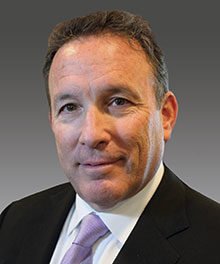Big-City Agribusiness

Most of us don’t think of New York City, Chicago and Baltimore as agricultural capitals, but a lot has changed since the pandemic. Apparently, indoor farming is taking off, and could even end up being a good use of the vacant commercial real estate across the nation’s major cities. It is already being seen as a way to fill the half-empty grocery store shelves caused by the supply-chain crisis. Even Walmart is investing in vertical farming, and one company in the space, Kalera, just announced plans to go public. Who knew this trend was getting so hot? Louis Biscotti, national leader of Marcum’s Food & Beverage Services Group, just wrote a very interesting piece about it for Forbes.
In the business world, when one door closes, another one usually opens, as we saw when manufacturers pivoted to making masks at the height of the pandemic. The entrepreneurs who are paying attention to signals from the marketplace will be the ones who find opportunities like this.
I thought of how adversity can spark innovation when I saw the results of the latest Marcum-Hofstra CEO Survey. On top of challenges like employee retention and workplace stress, nearly 69% of CEOs said their business has been impacted by price inflation, and 43% cited rising materials/operational costs. It’s back to the seventies all over again, minus the gas lines some of us remember from childhood.
Inflation is no picnic, and it’s causing intense pressure on profits, but there could be a silver lining. The current business climate could be the opportunity of a lifetime for companies that come up with solutions to help B2B clients navigate the marketplace more efficiently, source more of their purchases locally and keep closer track of spending. It could also spark many companies to tighten up their operations in ways they probably meant to do before the pandemic distracted everyone. Many CEOs who responded to the survey are already cutting budgets, reprioritizing projects and evaluating their pricing models. Now’s when innovation needs to kick in.
Amid all of the business challenges companies are facing, CEOs are prioritizing employees’ mental health. It’s not only the right thing to do; it’s a necessity in the face of the Great Resignation. Many companies, including Marcum, are offering Employee Assistance Programs, as well as on-site stress management and mindfulness programs. They’re also offering flexible work schedules, something Marcum embraced long before COVID. Companies can only serve their customers or clients well if their employees are thriving, and offering flexibility is one of the most effective ways to ensure that.
With many cities reopening for business once again, hopefully the pressures everyone is facing will diminish. In the meantime, I’m hoping to take advantage of the warmer weather that’s just around the corner to plan some local excursions with my family. Perhaps a field trip to pick strawberries at one of New York City’s vertical farms is in order (if that’s not a thing yet, it should be).
